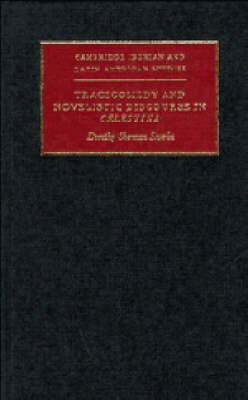The late fifteenth-century Spanish masterpiece Celestina is one of the world's classics. In this important study, Dorothy Sherman Severin investigates how Fernando de Rojas' work in dialogue, which parodies earlier genres, is a precursor of the modern novel. In Celestina, the hero Calisto parodies the courtly lover, the heroine Melibea lives through classical examples and popular students' knowledge, the bawd and go-between Celestina deals a blow to the world of wisdom literature, and Melibea's father Pleberio gives his own gloss on the lament. There is also a fatal clash between two literary worlds, that one of the self-styled courtly lover (the fool) and the prototype picaresque world of the Spanish Bawd and her mentors (the rogues). The voices of Celestina are parodic, satiric, ironic and occasionally tragic, and it is in their discourse that the dialogue world of the modern novel is born. In order to make this book accessible to a wider English-speaking readership, quotations from the text are accompanied by English translations, mainly from the seventeenth-century English version by James Mabbe.
- ISBN13 9780521350853
- Publish Date 1 June 1989 (first published 26 May 1983)
- Publish Status Inactive
- Out of Print 14 July 2000
- Publish Country GB
- Imprint Cambridge University Press
- Format Hardcover
- Pages 160
- Language English
